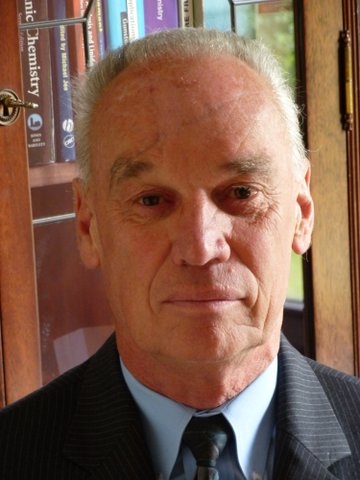
Roland Verhe, a leader in sustainable international programs, is the guest speaker for this spring's Global Food Opportunities Seminar series hosted by the U of A's Dale Bumpers College of Agricultural, Food and Life Sciences.
Verhe, an expert in food chemistry and engineering, is speaking to students, faculty and staff from 11-12:15 p.m. Tuesday, March 6, in the John W. Tyson Building (poultry science, Room A211). The publicly open Global Food Opportunities Seminar series exposes students across the university to international experiences and opportunities to expand career and academic options. Verhe's visit is co-sponsored by the Bumpers College International Programs Office and the Department of Food Science. His presentation is "Initiatives to Create Sustainable Internationalization in Higher Education."
As a proponent of international programs, Verhe has developed opportunities and secured federal funding for students worldwide since 1988. He has developed exchange programs, short courses and curriculum with more than 50 universities involving more than 4,000 students.
Verhe has a master's degree in chemical and food engineering, and a doctorate in agricultural sciences with an emphasis in organic chemistry, both from the State University of Ghent in Belgium. His research program included organic synthesis of natural products and agrochemicals, organic analysis, renewable resources, production of biofuels, food safety, food engineering, chemistry and technology of lipids. After serving as an assistant, associate and full professor at Ghent in the Department of Organic Chemistry, he was promoted to head of the Department of Organic Chemistry in Bioscience Engineering. He retired in 2010 as Professor Emeritus.
As a visiting scholar, Verhe studied at Stanford University, the Hebrew University of Israel and the University of California at Santa Barbara. He also served as a visiting professor at Wageningen University. Verhe was involved in many programs focused on student exchange, staff mobility and curriculum development.
After retirement, Verhe began work at the Department of Food Technology, Food Quality and Food Safety at Ghent University. He is also a technical expert at Bio Base Europe Pilot Plant and a scientific consultant at Biopower and ReNaSci (waste to materials and waste to energy).
He has received honorary doctorate awards from several universities, including the University of Technology Kaunas (Lithuania), the Mongolian University of Science and Technology, Corvinus University (Budapest, Hungary) and the Veterinary and Agricultural University Cluj-Napoca (Romania).
About the Dale Bumpers College of Agricultural, Food and Life Sciences: Bumpers College provides life-changing opportunities to position and prepare graduates who will be leaders in the businesses associated with foods, family, the environment, agriculture, sustainability and human quality of life; and who will be first-choice candidates of employers looking for leaders, innovators, policy makers and entrepreneurs. The college is named for Dale Bumpers, former Arkansas governor and longtime U.S. senator who made the state prominent in national and international agriculture.
About the University of Arkansas: The University of Arkansas provides an internationally competitive education for undergraduate and graduate students in more than 200 academic programs. The university contributes new knowledge, economic development, basic and applied research, and creative activity while also providing service to academic and professional disciplines. The Carnegie Foundation classifies the University of Arkansas among only 2 percent of universities in America that have the highest level of research activity. U.S. News & World Report ranks the University of Arkansas among its top American public research universities. Founded in 1871, the University of Arkansas comprises 10 colleges and schools and maintains a low student-to-faculty ratio that promotes personal attention and close mentoring.
Topics
Contacts
Kenley Bramall, communications intern
Dale Bumpers College of Agricultural, Food and Life Sciences
479-575-4625,